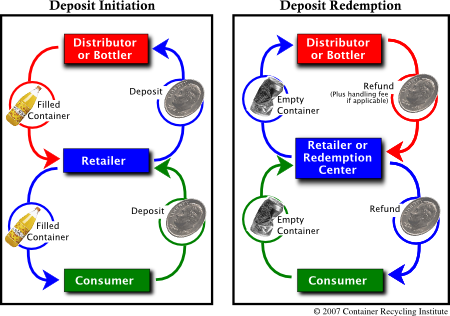|
What is a bottle bill state?
How does it work? Beverage container deposit
laws, or bottle bills as they are more commonly known are designed to reduce
litter and increase recycling for bottles, cans, and other materials. Bottle
Bill States offer a refund per can or
bottle you recycle that varies per state. You’re probably thinking, how does it
all work? So far there are ten bottle
bill states where you can receive a small
deposit back for returning the empty container to the store. The states are
California, Connecticut, Guam, Hawai, Iowa, Maine, Massachusetts, Michigan, New
York, Oregon, and Vermont.
|


